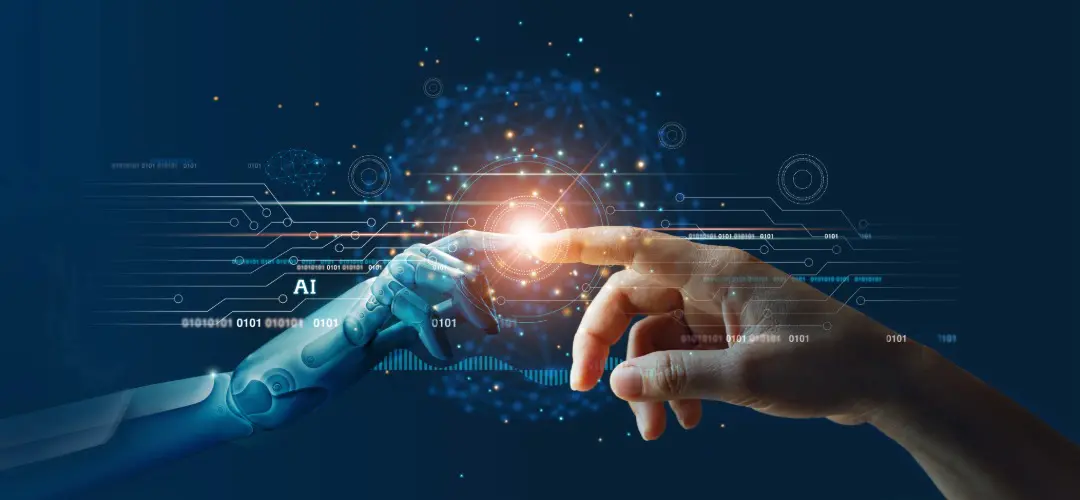This week, we’re pleased to feature a guest blog post from Rolfe Larson, the assistant academic program director for the Information Technology program and interim director of the Environmental Policy and Management program. Larson is a veteran professor and administrator at the College of Professional Studies, and has worked as a consultant to nonprofits/NGOs, and social enterprises across various sectors.
This is an interesting time to be human. AI can do many of the things that we thought only we could do. It is very good at writing code, assessing security risks, designing web sites, and personalized learning. Indeed, name almost anything an IT person (or an educator) does today in their job, and likely someone right now is looking for a way for AI to do it better, faster, cheaper.
Scary, eh?
Maybe, but there’s still plenty of space at the table for humans. While AI can process data faster—way faster—than any human, it also lacks many of the characteristics that we humans need and find so, well, human. And it’s unlikely to acquire them anytime soon. To be effective in our jobs and in our lives, we will continue to look to each other for connection, excitement, fear, sorrow, inspiration. Rarely is a technical solution complete without the personal element. AI doesn’t have those feelings and doesn’t (so far) do a great job of mimicking them. It doesn’t know how to struggle with a moral dilemma or how to make a difficult decision when emotions are part of the equation (which is almost always the case.
But will I lose my job to AI?
AI is certainly transforming the workplace. Unfortunately, as with any major change, some jobs will disappear, others will shift, new ones will emerge. The job you have right now might not have existed 50 years ago, or it certainly has changed over the years. So of course, the workplace will continue to evolve. Constantly update your skills and you’ll be fine. Employers will always need people with strengths in communication, judgment, empathy and imagination. Those capacities are not in AI’s wheelhouse, not now or in the foreseeable future.
Machines cannot replace our natural skills to care, to wonder, to dream. We are authentic in a way that AI cannot be. Technology can help us deepen our humanity as we learn to embrace our imperfections.
AI can never touch the one core thing that binds us together: our shared humanity.

